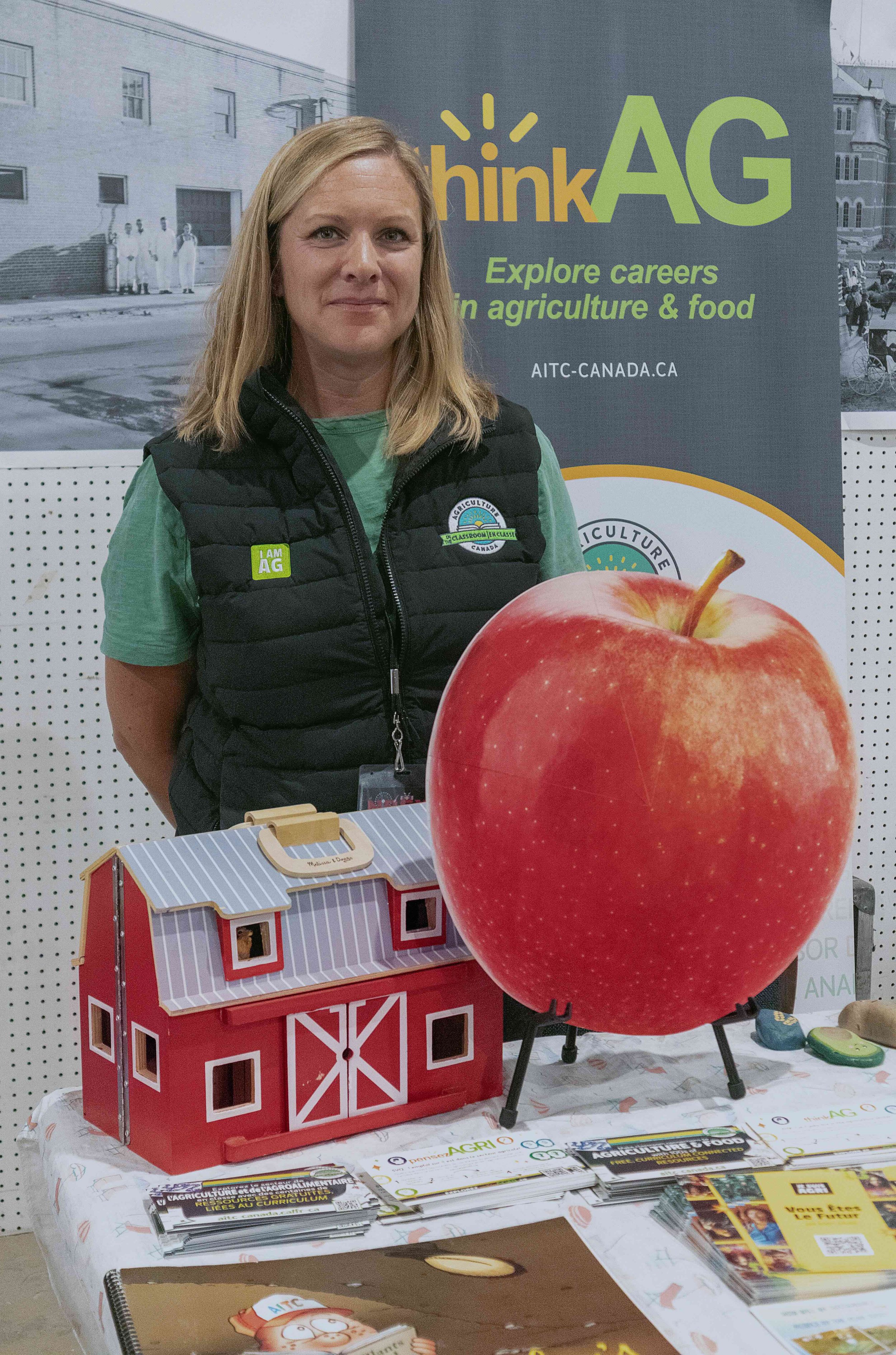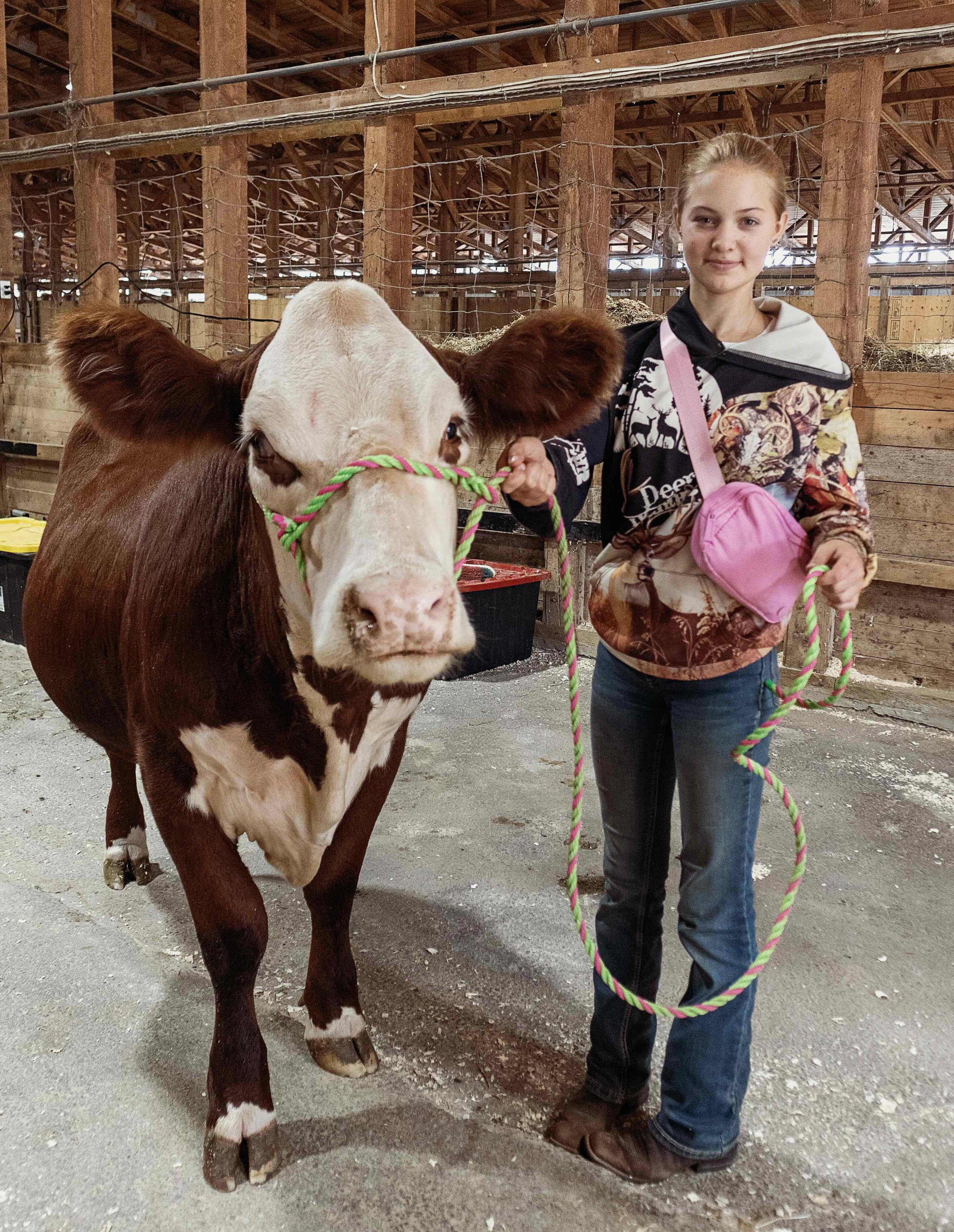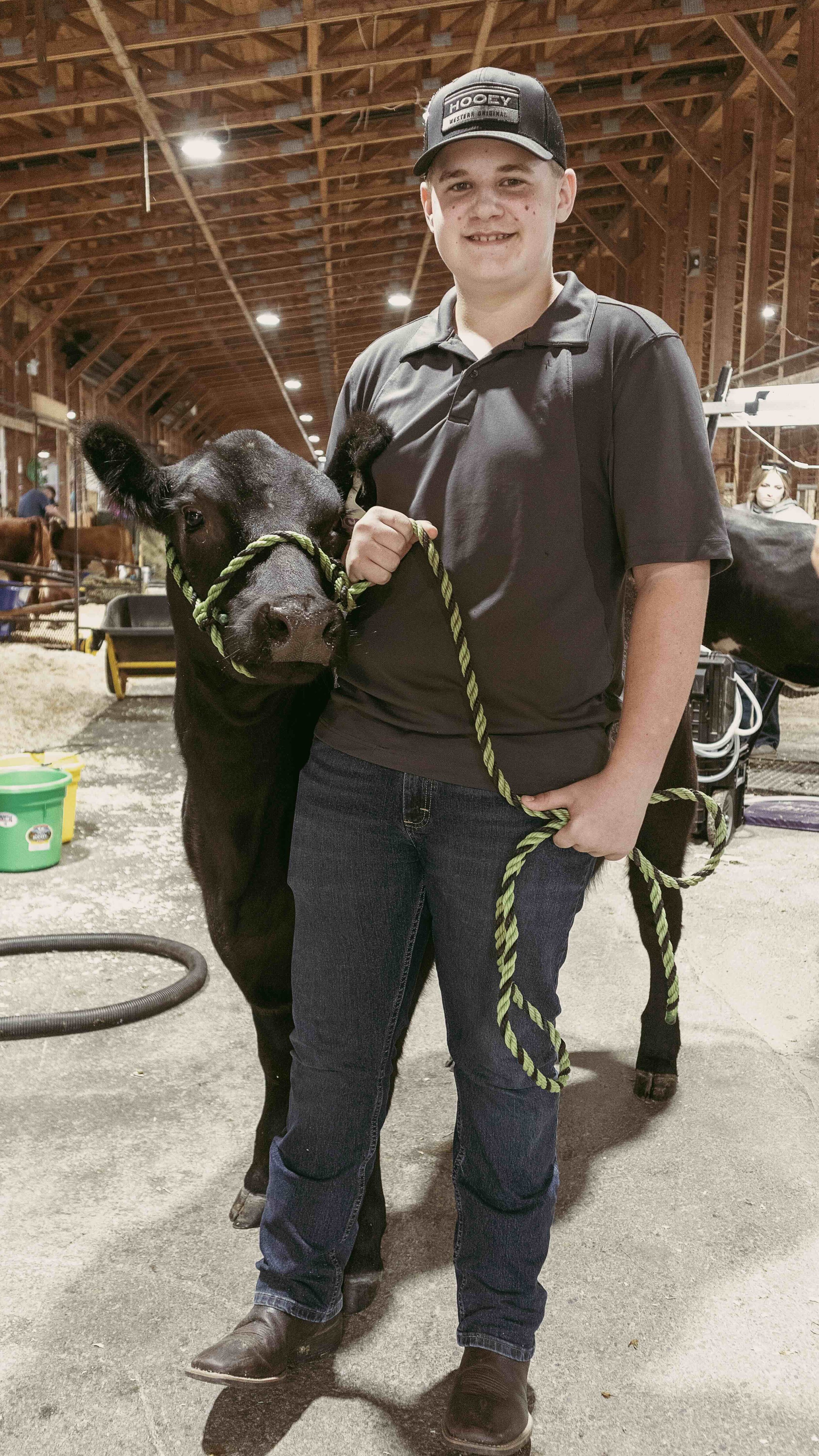words by Inda Intiar / photos by Haqq Brice
Cultivating the future of agriculture
Translation by Mychèle Poitras
Aubree at the NBEX
Charlotte Flores has been concerned about the disconnect between individuals and their food sources. She says many young people don’t know where the fruits, vegetables, meat and dairy in the grocery stores come from.
Flores, the manager of Agriculture in the Classroom (AITC) New Brunswick, wants to change that. AITC New Brunswick not only educates young people on food systems and their roles in it, but it also aims to change the narrative around agriculture careers.
Flores believes that by engaging young people in agriculture, they can become informed citizens who make conscious food choices and support sustainable food systems. Whether they choose a career in agriculture or not, they will have a better understanding of where their food comes from and the importance of agriculture in society.
“We do need children to understand food systems, why food is important, and also how to be a part of that puzzle for food,” she says.

Charlotte Flores of AITC-NB

Karen Versloot and Ally Bauchman of 4-H New Brunswick
AITC New Brunswick offers a range of programs for children and youth. It primarily offers resources and training for teachers and home-schooling families to help children learn to grow food, explore careers through a game, and facilitate visits to farms. AITC New Brunswick also presents at agricultural exhibitions like NBEX in Fredericton, engaging the public in activities and conversations. AITC also educates students about the need for or increased food production and sustainable practices for the future, through a program called Journey 2050.
"It's empowering the young people to say, this is bigger than just, do I want to work in agriculture or not? It's like, what is the future of our country?" Charlotte adds.
For Ally Bauchman, her entry into agriculture began at the hobby farm she grew up in near Gagetown, NB. She was only six years old when she joined 4-H New Brunswick, a non-profit that offers youth experiential education on various topics including agriculture, mentorship, and leadership skills. Now its Program Coordinator, Bauchman says 4-H offered opportunities where few were available. Her time there has enabled international travel, and a visit to the White House.
“As soon as I left the farm and went to school, I went to the agriculture college in Truro, and you realize how much you miss it and how beneficial it was to grow up in that atmosphere,” she says. “You look back and think, if you hadn't grown up in that farm setting, there'd be so many opportunities that you would have missed.”
4-H stands for head, heart, health and hand, explains Karen Versloot, a dairy farmer and a board member of the organisation. 4-H serves 6-to-21 year olds, and includes programs for agriculture, photography, baking, public speaking and more. The agriculture portion primarily focuses on showing various farm animals—an easy entry point for young people.
Last fall, current members Kode Wright (14), Aubree Upshaw (13) and Drew Ness (15) participated in the animal show at NBEX. They’ve learned to care for and groom cows, horses and rabbits, to name a few.
“It kind of helps out me a lot because I know that I want to become a vet, so it helps me get to know more of the animals,” Kode says.
All three aspire to become veterinarians, aware of the labour shortage in that profession. Aubree says, “We definitely need more vets in New Brunswick…that's part of the reason why I want to become a vet.” A collaboration between 4-H New Brunswick and NBEX increased the number of entries in the show. Many of the 4-H youth also took part in labs with AITC.
At 4-H, youth can start and lead clubs, and learn by working on projects, with adult guidance.

4-H Members Drew and Kode

“It's all about teaching those leadership components from a young age and instilling that in them so that they can progress through life in a leadership position,” said Bauchman.
Versloot says she has seen many young people who didn’t come from a farming background join 4-H and now have careers in agriculture. “I've seen it happen many, many times that that's what got them interested in agriculture. And as they got older, they saw the jobs that were out there. You don't have to have a farmer to be involved in agriculture. There's lots and lots of jobs out there that work with the farmers, all kinds of different organizations.”
Agriculture careers have for long been perceived as difficult, seasonal and “dirty” work. But Flores and Versloot say the sector is broad, with various good paying jobs—from those on a farm to the ones behind a desk; from jobs connected to environmental sustainability to those related to emerging technology.
As the growing global and national population will require more food, Canada is expected to see 123,000 vacant agricultural jobs by 2029, according to an RBC report. McGill University economist and agronomist Pascal Thériault this year expressed concerns that little has been done about this expected shortfall.
Karen says it’s important for young people to be exposed to agricultural careers early.
“If we don't have people working in agriculture, where's our food going to come from?” said Versloot. “I think it's really important to get them started off young, otherwise they will just choose different careers.” 👩🏽🌾
This piece can be found in Summer 2025, Edible Maritimes #15
Inda Intiar is a writer, storyteller, and facilitator who brings a global perspective from growing up across multiple countries. Inda loves travelling, and trying new experiences and flavours. / Inda Intiar est une écrivaine, une conteuse, une personne connectée et une facilitatrice qui apporte une perspective mondiale en ayant grandi dans de plusieurs pays. Inda adore voyager et essayer de nouvelles expériences et saveurs. @firenationexplores
Haqq Brice is a photographer and multidisciplinary artist based in Moncton, whose art and creativity are used to express his vision. / Haqq Brice est un photographe et artiste multidisciplinaire basé à Moncton qui exprime sa vision à travers son art et sa créativité.
Mychèle Poitras has worked in communications for over two decades and she co-founded Les Brasseurs du Petit-Sault, Edmundston's first craft brewery. A lover of language, she is deeply passionate about the power of words and their ability to inspire and connect. / Avec une carrière de plus de deux décennies dans le secteur public, Mychèle Poitras a travaillé comme journaliste provinciale, et a cofondé Les Brasseurs du Petit-Sault, la première brasserie artisanale d'Edmundston. Amoureuse de la langue, elle est profondément passionnée par le pouvoir des mots et leur capacité d'inspirer et d'établir des liens.
Thank you for reading! If you would like more early access to our stories in digital format we encourage you to consider becoming a member. Learn more about our membership plans click the button below.
